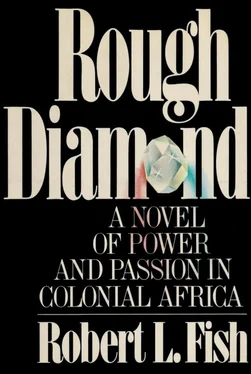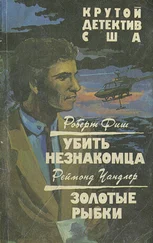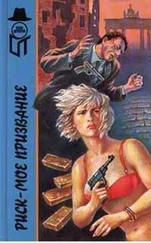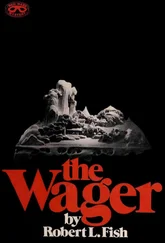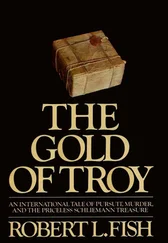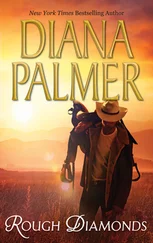“Barney — I’m afraid I forgot my purse…”
“How much is it?” Barney asked, reaching for his pocket and really not at all surprised.
“Two pounds…”
“Two—!” Barney swallowed. Almost half as much as it would have cost him for his entire trip across the Karroo had Andries charged him! It was lucky he had managed to make himself useful on the trail. Two quid for one meal! He had heard that Kimberley was expensive, but two bloody quid? Still, he thought as he reluctantly took two worn one-pound notes from his purse and laid them on the waitress’s palm, it was worth it in a way for the information Harry had given him. Or it had better be worth it in a very short time, because it was certain that unless he got cracking and made money in a hurry, his small reserve wouldn’t last very long!
The pack on Barney’s back had a familiar feel to it; in Petticoat Lane he had often gone out with a pack, peddling anything he had been able to buy at a cheap enough price and sell at a profit no matter how small: the best he could select from the remains when the fruits or vegetables had already been picked over in Covent Garden; the best of the rags from the various pickers for his mother to wash and repair to be later peddled to those even poorer than the poor devil who had sold the rag in the first place. Anything that could be bought and sold — anything not new, that is — Barney was sure he had handled in his few years.
This time his pack — a hastily contrived affair made from one of his worn shirts and carried slung over his shoulder and held by the tied sleeves — contained the books he had brought with him. It was a sacrifice Barney was sure he would regret in time, but he had learned early in life that one sells whatever one feels has value at the moment, and he was sure there had to be a good market for reading material in the culturally starved camp. Certainly he knew if he had money he wouldn’t be selling his books, but would be in the market for more. That day would come, he was sure, but in the meantime there was the problem of building up his capital. Twenty quid, he had discovered, wouldn’t get a person far in Kimberley.
The first place he stopped was at one of the sorting sheds; the mine itself was obviously out of bounds for anyone attempting to sell anything, unless one wanted to inadvertently get a pickax in his back, or be cut by a swinging shovel. Before the shed, Kaffirs were breaking up the large lumps of yellowish soil that had been carted up from the claim, spreading it about so that the sun and rain, if and when it came, could complete the job of disintegrating the soil into finer lumps that could be searched for diamonds. Soil already broken down was being broken into even smaller bits; a black was shoveling this finer broken earth onto a table in the shade under the shed, where several white men were seated, going over the dirt with small spatulas, breaking it even finer, searching for the elusive sparkle that would denote a diamond. One of them, a large bearded chap, looked up at Barney’s approach, took in the small body carrying the large sacklike pack, and then returned his attention to the sorting table and his work.
“Whatever you’re peddling, son, we don’t want none,” he said.
Barney grinned down at the back of the man’s head, his friendliest grin, even though it was being wasted. He put as much charm as he could into his voice. “Come, now, man! Now, if I was peddlin’ pound notes for fifteen bob, d’you mean you wouldn’t be interested?”
“Interested in seeing you in quod for a Jeremy Diddler,” the second man said cheerfully without looking up from his task.
“What about if I was peddlin’ a even greater bargain, and no cheat at all about it? Food for your brain, man, better than the poor stuff you put into your belly three times a day?”
The first man looked up. “What are you talking about, son?”
“Books!” Barney set the pack down and reached in, taking the first one that came to hand, bringing it out. He looked at the title on the worn spine; it was The Bells . He hastily returned it to the sack and brought out another. “Ah! The immortal Shakespeare! One of the best things ’e ever done — a bit called Macbet’! You gentlemen got to know it an’ appreciate it like all the coves o’ London. ‘Macbet’ shall never be vanquished’ — that’s vanquished be — ’until Great Birnam Wood to ’igh Dunsinane shall come against ’im!’ What d’you say, gents?” Barney had unconsciously dropped into broad Cockney; his voice had taken on the tones of a pitch artist. The man looked at him a moment, turned to his partner and winked, and then came back to Barney, sighing.
“Son,” he said. “If I was buying a book, it wouldn’t be to read. It would be for the paper. I’m weary to death of using mealie cobs.” Barney stared at him almost in horror. The man laughed. “Just joking, son. How much do you want for your book?”
Barney swallowed. When he had started out that morning he hadn’t given the necessary thought to the question of price. He knew what a used, worn, dog-eared book like the one he was offering would be worth back in the East End of London — a few pennies at the very most — but in a mining camp most likely hungry for any reading material at all, it could be worth anything. The man was staring at him.
“Well?”
Barney made up his mind. When you didn’t know the true current value of something, then you didn’t sell it. At the worst you traded it for something of equally unknown value.
“I’ll fell you,” he said. “You can have the book for lettin’ me go through the dirt you already culled.” He pointed to the pile behind the table, a pile formed by the men scraping it from the table when they were through searching it.
The man stared at him a moment and shrugged. “You don’t seem to put much value on your book. Me and my friend here, we don’t miss very much. But if you want to waste your time and hand over a book at the same time, I’m not the one to teach anyone his business.” He pointed to the dirt pile. “Go ahead. Have fun.”
“Right!” Barney said happily. At least he was involved in diamond mining if only at the worst possible end of it. He dragged his pack over to the pile and sat down on the ground, starting to riffle through the culled dirt with his fingers. The man tossed him one of the spatulas they were using on the sorting table.
“My contribution,” he said dryly, and went back to work.
The day dragged on. Several times Barney saw a faint sparkle in the dirt; each time he scraped it off and studied it. The bits he was uncovering were each the size of a pinhead, but he still carefully separated them from the yellowish soil, rubbed each one as clean as he could considering its tiny size, and tucked it into his shirt pocket. He had four of them, each infinitesimal in size, when a small man came into the yard, carrying a small wooden box in one hand. He was a thin, gray-haired, ferret-faced man with a seamed face, tiny suspicious eyes, and dressed in typical digger’s clothes, wearing one of the wide leather belts with pouches the sorters and the diggers used to keep their stones in. The man set his small box on the edge of the sorting table, opened it, and brought out a small balance scale. He smiled, a smile that started at his lips and ended there, not touching his tiny eyes, a smile that exhibited stained, broken teeth. He looked around.
“Well? Anything for me today?”
The bearded man at the sorting table dug into his belt, bringing out the day’s find. Barney, watching with fascination, estimated there were at least ten to twelve fairly decent-sized stones in the palm of his hand. He dumped them into the pan of the scale and watched as the other man drew a loupe from a pocket of his jacket and examined each stone carefully. At last he separated the stones into three groups and began weighing them. When at last he was finished he drew out a pad and pencil and began making calculations on the paper. At last he looked up.
Читать дальше
